DIANE'S CORNER ...
Celebrate Tuberculosis Day
Celebrate Tuberculosis Day
Every year, a day is dedicated to raising awareness about tuberculosis, commonly known as TB. The first Tuberculosis Day was in 1982, a hundred years after Dr Robert Koch announced to the scientific community that he had discovered the cause of the virulent disease, thus paving the way for an eventual cure.
At the time of Koch’s announcement, TB was one of the world’s deadliest diseases, killing an estimated one in seven people. Although the virus has almost been eradicated in the western world, it still poses a serious problem in developing countries and is making a comeback in areas where there is significant overcrowding and poor nutrition.
You can mark Tuberculosis Day by learning about the international strategies to combat the disease and by raising awareness in your own community.This almost-forgotten disease is important because TB is not just a Dickensian disease; it is still very much with us.
thanks for 'Blast From the Past' pics, Valerie, Canadian Correspondent

Word of the Day
rede
MEANING:
verb tr.: 1. To advise. 2. To interpret or explain. noun: 1. Advice. 2. An account or a narration.
ETYMOLOGY:
From Old English rǣdan (read). Ultimately from the Indo-European root ar- (to fit together), which also gave us army, harmony, article, order, read, adorn, arithmetic, rhyme, and ratiocinate. Earliest documented use: before 450.
USAGE:
“There master Courtenay, sitting in his own chamber, gave his rede.”
James Joyce; Ulysses; Sylvia Beach; 1922.
“Well, rede me this riddle.”
L. Sprague deCamp and Catherine Crook deCamp; The Incorporated Knight; Phantasia Press; 1987.
“Yet do not cast all hope away. Tomorrow is unknown. Rede oft is found at the rising of the Sun.”
J.R.R. Tolkien; The Two Towers (vol. 2 of The Lord of the Rings trilogy); George Allen & Unwin; 1954.
Dame Margot Fonteyn and Sir Frederick Ashton
at the barre in a boat

MEANING:
| verb tr.: | 1. To advise. |
| 2. To interpret or explain. | |
| noun: | 1. Advice. |
| 2. An account or a narration. |
ETYMOLOGY:
From Old English rǣdan (read). Ultimately from the Indo-European root ar- (to fit together), which also gave us army, harmony, article, order, read, adorn, arithmetic, rhyme, and ratiocinate. Earliest documented use: before 450.
USAGE:
“There master Courtenay, sitting in his own chamber, gave his rede.”
James Joyce; Ulysses; Sylvia Beach; 1922.
“Well, rede me this riddle.”
L. Sprague deCamp and Catherine Crook deCamp; The Incorporated Knight; Phantasia Press; 1987.
“Yet do not cast all hope away. Tomorrow is unknown. Rede oft is found at the rising of the Sun.”
J.R.R. Tolkien; The Two Towers (vol. 2 of The Lord of the Rings trilogy); George Allen & Unwin; 1954.
James Joyce; Ulysses; Sylvia Beach; 1922.
“Well, rede me this riddle.”
L. Sprague deCamp and Catherine Crook deCamp; The Incorporated Knight; Phantasia Press; 1987.
“Yet do not cast all hope away. Tomorrow is unknown. Rede oft is found at the rising of the Sun.”
J.R.R. Tolkien; The Two Towers (vol. 2 of The Lord of the Rings trilogy); George Allen & Unwin; 1954.
Dame Margot Fonteyn and Sir Frederick Ashton

Idiom of the Day
As Cool As A Cucumber - boredpanda.com

This Day in History
 1721 - In Germany, Johann Sebastian Bach published the Six Brandenburg Concertos.
1721 - In Germany, Johann Sebastian Bach published the Six Brandenburg Concertos.

1792 - Benjamin West became the first American artist to be selected president of the Royal Academy of London.
 1837 - Canada gave blacks the right to vote
1837 - Canada gave blacks the right to vote
 1868 - Metropolitan Life Insurance Company was formed.
1868 - Metropolitan Life Insurance Company was formed.
 1900 - Mayor Van Wyck of New York broke the ground for the New York subway tunnel that would link Manhattan and Brooklyn.
1900 - Mayor Van Wyck of New York broke the ground for the New York subway tunnel that would link Manhattan and Brooklyn.
 1932 - Belle Baker hosted a radio variety show from a moving train. It was the first radio broadcast from a train.
1932 - Belle Baker hosted a radio variety show from a moving train. It was the first radio broadcast from a train.

Ben Gazzara as Brick in the original Broadway production
1955 - Tennessee Williams' play "Cat on a Hot Tin Roof" debuted on Broadway.

1960 - A U.S. appeals court ruled that the novel "Lady Chatterley's Lover" was not obscene and could be sent through the mail.

1980 - "Nightline" with Ted Koppel premiered.

1989 - The Exxon Valdez spilled 240,000 barrels (11 million gallons) of oil in Alaska's Prince William Sound after it ran aground.

2001 - Apple Computer Inc's operating system MAC OS X went on sale.

2002 - Thieves stole five 17th century paintings from the Frans Hals Museum in the Dutch city of Haarlem. The paintings were worth about $2.6 million. The paintings were works by Jan Steen, Cornelis Bega, Adriaan van Ostade and Cornelis Dusart.

2005 - Sandra Bullock received a star on the Hollywood Walk of Fame.

DAILY SQU-EEK
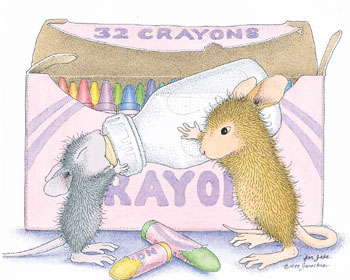
If You Were Born Today, March 24
Exceptionally intuitive, you are highly perceptive and often have very good instincts. Many of you have psychic ability, or at least, very accurate first impressions. You are idealistic and truthful, and others generally respect you for speaking the truth, even if it hurts sometimes! You are stubborn but determined; loving and dedicated. Famous people born today:
 1874 Harry Houdini [Erich Weiss], Famous magician and escape artist, born in Budapest, Austria-Hungary (d. 1926)
1874 Harry Houdini [Erich Weiss], Famous magician and escape artist, born in Budapest, Austria-Hungary (d. 1926)
 1902 Thomas E. Dewey, Governor of NY and Republican presidential candidate (1944, 1948), born in Owosso, Michigan (d. 1971)
1902 Thomas E. Dewey, Governor of NY and Republican presidential candidate (1944, 1948), born in Owosso, Michigan (d. 1971)
 1909 Clyde Barrow, American bank robber (of Bonnie & Clyde fame), born in Ellis County, Texas (d. 1934)
1909 Clyde Barrow, American bank robber (of Bonnie & Clyde fame), born in Ellis County, Texas (d. 1934)
 1911 Joseph Barbera, American animator (Hanna-Barbera - Tom and Jerry), born in Manhattan, New York (d. 2006)
1911 Joseph Barbera, American animator (Hanna-Barbera - Tom and Jerry), born in Manhattan, New York (d. 2006)
 1912 Dorothy Height, American civil rights and women's rights activist (National Council of Negro Women), born in Richmond, Virginia (d. 2010)
1912 Dorothy Height, American civil rights and women's rights activist (National Council of Negro Women), born in Richmond, Virginia (d. 2010)
 1930 Steve McQueen, American actor called "The King of Cool" during the 1960s (The Magnificent Seven, The Great Escape), born in Beech Grove, Indiana (d. 1980)
1930 Steve McQueen, American actor called "The King of Cool" during the 1960s (The Magnificent Seven, The Great Escape), born in Beech Grove, Indiana (d. 1980)
 1976 Peyton Manning, American football quarterback (Indianapolis Colts, Denver Broncos), born in New Orleans, Louisiana
1976 Peyton Manning, American football quarterback (Indianapolis Colts, Denver Broncos), born in New Orleans, Louisiana

READERS INFO
1.
1937 -
 Congress established the National Gallery of Art in Washington D.C. The National Gallery began when Andrew W. Mellon offered to donate his art collection and money through a trust to construct a museum.
The museum's building was designed by the architect John Russell Pope. Pope had designed many famous buildings in Washington, D.C., including the National Archives building and the Jefferson Memorial. Both Mellon and Pope passed away before the completion of the project. Interestingly, the West Building of the National Gallery is located on the former location of the Baltimore and Potomac Railroad station -- the place where President James A. Garfield was shot by Charles J. Guiteau on July 2, 1881. President Garfield passed away on Sept. 19, 1881, likely due to an infection caused during treatments for the gunshot wound. The railroad station was closed in 1907 and was later demolished.
The museum's construction was completed in 1940 and the museum was dedicated on March 17, 1941. During the dedication of the museum, President Franklin D. Roosevelt gave a speech, accepting the gift on behalf of the nation. The museum began with 126 paintings and 26 sculptures that had been donated by Andrew Mellon. Several other individuals donated works to the museum, including Samuel H. Kress, P.A.B. Widener and his son Joseph Widener, and Lessing J. Rosenwald. The museum currently contains works by many famous artists including Monet, Van Gogh, Rembrandt, Picasso and Jackson Pollock, among others.
Congress established the National Gallery of Art in Washington D.C. The National Gallery began when Andrew W. Mellon offered to donate his art collection and money through a trust to construct a museum.
The museum's building was designed by the architect John Russell Pope. Pope had designed many famous buildings in Washington, D.C., including the National Archives building and the Jefferson Memorial. Both Mellon and Pope passed away before the completion of the project. Interestingly, the West Building of the National Gallery is located on the former location of the Baltimore and Potomac Railroad station -- the place where President James A. Garfield was shot by Charles J. Guiteau on July 2, 1881. President Garfield passed away on Sept. 19, 1881, likely due to an infection caused during treatments for the gunshot wound. The railroad station was closed in 1907 and was later demolished.
The museum's construction was completed in 1940 and the museum was dedicated on March 17, 1941. During the dedication of the museum, President Franklin D. Roosevelt gave a speech, accepting the gift on behalf of the nation. The museum began with 126 paintings and 26 sculptures that had been donated by Andrew Mellon. Several other individuals donated works to the museum, including Samuel H. Kress, P.A.B. Widener and his son Joseph Widener, and Lessing J. Rosenwald. The museum currently contains works by many famous artists including Monet, Van Gogh, Rembrandt, Picasso and Jackson Pollock, among others.
2.
1721 - In Germany, Johann Sebastian Bach published the Six Brandenburg Concertos.
1792 - Benjamin West became the first American artist to be selected president of the Royal Academy of London.
1837 - Canada gave blacks the right to vote
1868 - Metropolitan Life Insurance Company was formed.
1900 - Mayor Van Wyck of New York broke the ground for the New York subway tunnel that would link Manhattan and Brooklyn.
1932 - Belle Baker hosted a radio variety show from a moving train. It was the first radio broadcast from a train.
Ben Gazzara as Brick in the original Broadway production
1955 - Tennessee Williams' play "Cat on a Hot Tin Roof" debuted on Broadway.

1960 - A U.S. appeals court ruled that the novel "Lady Chatterley's Lover" was not obscene and could be sent through the mail.

1980 - "Nightline" with Ted Koppel premiered.

1989 - The Exxon Valdez spilled 240,000 barrels (11 million gallons) of oil in Alaska's Prince William Sound after it ran aground.

2001 - Apple Computer Inc's operating system MAC OS X went on sale.

2002 - Thieves stole five 17th century paintings from the Frans Hals Museum in the Dutch city of Haarlem. The paintings were worth about $2.6 million. The paintings were works by Jan Steen, Cornelis Bega, Adriaan van Ostade and Cornelis Dusart.

2005 - Sandra Bullock received a star on the Hollywood Walk of Fame.

DAILY SQU-EEK
1960 - A U.S. appeals court ruled that the novel "Lady Chatterley's Lover" was not obscene and could be sent through the mail.
1980 - "Nightline" with Ted Koppel premiered.
1989 - The Exxon Valdez spilled 240,000 barrels (11 million gallons) of oil in Alaska's Prince William Sound after it ran aground.
2001 - Apple Computer Inc's operating system MAC OS X went on sale.
2002 - Thieves stole five 17th century paintings from the Frans Hals Museum in the Dutch city of Haarlem. The paintings were worth about $2.6 million. The paintings were works by Jan Steen, Cornelis Bega, Adriaan van Ostade and Cornelis Dusart.
2005 - Sandra Bullock received a star on the Hollywood Walk of Fame.

DAILY SQU-EEK

If You Were Born Today, March 24
Exceptionally intuitive, you are highly perceptive and often have very good instincts. Many of you have psychic ability, or at least, very accurate first impressions. You are idealistic and truthful, and others generally respect you for speaking the truth, even if it hurts sometimes! You are stubborn but determined; loving and dedicated. Famous people born today:

1874 Harry Houdini [Erich Weiss], Famous magician and escape artist, born in Budapest, Austria-Hungary (d. 1926)

1902 Thomas E. Dewey, Governor of NY and Republican presidential candidate (1944, 1948), born in Owosso, Michigan (d. 1971)

1909 Clyde Barrow, American bank robber (of Bonnie & Clyde fame), born in Ellis County, Texas (d. 1934)

1911 Joseph Barbera, American animator (Hanna-Barbera - Tom and Jerry), born in Manhattan, New York (d. 2006)

1912 Dorothy Height, American civil rights and women's rights activist (National Council of Negro Women), born in Richmond, Virginia (d. 2010)

1930 Steve McQueen, American actor called "The King of Cool" during the 1960s (The Magnificent Seven, The Great Escape), born in Beech Grove, Indiana (d. 1980)

1976 Peyton Manning, American football quarterback (Indianapolis Colts, Denver Broncos), born in New Orleans, Louisiana
READERS INFO
1937 -
The museum's building was designed by the architect John Russell Pope. Pope had designed many famous buildings in Washington, D.C., including the National Archives building and the Jefferson Memorial. Both Mellon and Pope passed away before the completion of the project. Interestingly, the West Building of the National Gallery is located on the former location of the Baltimore and Potomac Railroad station -- the place where President James A. Garfield was shot by Charles J. Guiteau on July 2, 1881. President Garfield passed away on Sept. 19, 1881, likely due to an infection caused during treatments for the gunshot wound. The railroad station was closed in 1907 and was later demolished.
The museum's construction was completed in 1940 and the museum was dedicated on March 17, 1941. During the dedication of the museum, President Franklin D. Roosevelt gave a speech, accepting the gift on behalf of the nation. The museum began with 126 paintings and 26 sculptures that had been donated by Andrew Mellon. Several other individuals donated works to the museum, including Samuel H. Kress, P.A.B. Widener and his son Joseph Widener, and Lessing J. Rosenwald. The museum currently contains works by many famous artists including Monet, Van Gogh, Rembrandt, Picasso and Jackson Pollock, among others.
2.
Pennsylvania Maple Festival 2019
Mar 30 - 31 Ap 3 - 7, 2019 | Meyersdale, PA
Pennsylvania Maple Festival Park|120 Meyers Ave
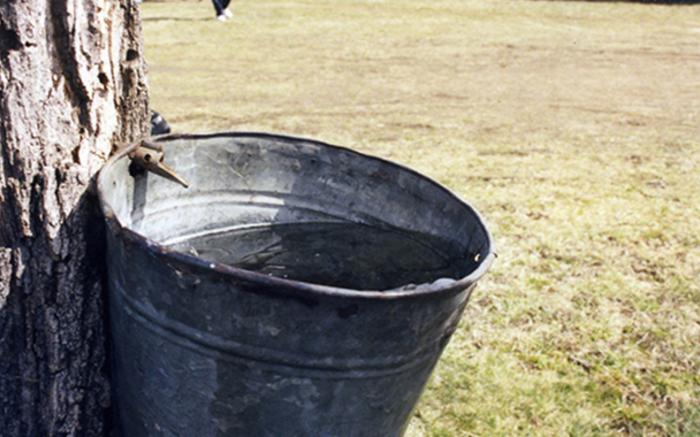
It’s time to tap into Meyersdale’s full potential at the Pennsylvania Maple Festival. Not only will you get to treat your taste buds to pure maple syrup, you’ll get to feast on stacks of pancakes after learning the extensive maple syrup-making process. In addition, there’s live music entertainment to kick back to, several maple products to sample and a country store that’s chock-full of homemade products to take home with you.
LA Spring Fair 2019
Mar 2019 Dates Unconfirmed | South El Monte, CA
La Prada Event Plaza at Whittier Narrows Park|1600 Rosemead Blvd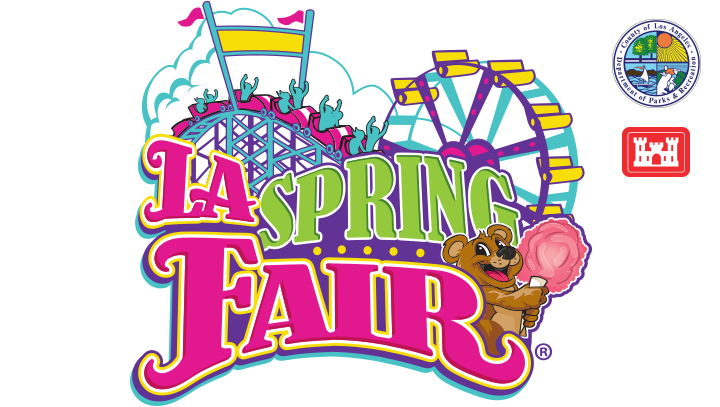

Largest Spring Festival in Los Angeles County, 6 acres of amusement rides, live music (on Sat. and Sun.), games, arts & crafts, and international food court. A one price admission ($15) allows the fair goer to ride all the carnival rides and see the live entertainment FREE. Free Parking.
Quick Facts:
- In Nevada, a disturbance with as few as 2 people can legally be considered a riot. In the U.S. in general, it takes 3 people. In England, 12.
- Apple trees are a member of the Rose family (Rosaceae).

- The draft for War and Peace, the 15th longest novel in the world with over a half a million words, was written out by hand seven times by Tolstoy’s wife, Sophia Tolstaya, before Tolstoy was happy with his novel.
- The first domain ever registered was Symbolics.com on March 15, 1985. It was registered by the Symbolics Computer Corp.

- The name “Twinkies” for the sponge-cake food was thought up by James Dewar, the Vice President of Continental Bakeries who sold under the Hostess brand. On the way to a marketing meeting, he saw a billboard advertising “Twinkle-Toes Shoes”, and thought up the name “Twinkies”.
- The terms “upper case” and “lower case” actually came to us quite recently, from the early days of the printing press. At this time, the letter blocks themselves were stored in specially organized boxes called cases. By convention, the cases containing the capital letters were stored higher than those containing the smaller versions of the letters. If one single case had compartments for all the letter blocks, the capital letters were stored in the back so that when the case was set upright, angled, they were higher, hence “upper case” and “lower case”. There were also several other such conventions with the storing of these letter blocks to make it easy for the compositor to set the type.

- “Hangover” was a common term in the 19th century meaning “unfinished business”. Around the early 20th century, the common meaning shifted slightly to mean as it does today.

PATTERN BOOK SUNDAY

- In Nevada, a disturbance with as few as 2 people can legally be considered a riot. In the U.S. in general, it takes 3 people. In England, 12.
- Apple trees are a member of the Rose family (Rosaceae).
- The draft for War and Peace, the 15th longest novel in the world with over a half a million words, was written out by hand seven times by Tolstoy’s wife, Sophia Tolstaya, before Tolstoy was happy with his novel.
- The first domain ever registered was Symbolics.com on March 15, 1985. It was registered by the Symbolics Computer Corp.
- The name “Twinkies” for the sponge-cake food was thought up by James Dewar, the Vice President of Continental Bakeries who sold under the Hostess brand. On the way to a marketing meeting, he saw a billboard advertising “Twinkle-Toes Shoes”, and thought up the name “Twinkies”.
- The terms “upper case” and “lower case” actually came to us quite recently, from the early days of the printing press. At this time, the letter blocks themselves were stored in specially organized boxes called cases. By convention, the cases containing the capital letters were stored higher than those containing the smaller versions of the letters. If one single case had compartments for all the letter blocks, the capital letters were stored in the back so that when the case was set upright, angled, they were higher, hence “upper case” and “lower case”. There were also several other such conventions with the storing of these letter blocks to make it easy for the compositor to set the type.
- “Hangover” was a common term in the 19th century meaning “unfinished business”. Around the early 20th century, the common meaning shifted slightly to mean as it does today.
PATTERN BOOK SUNDAY


 Red sky at night, sailors delight. Red sky in the morning, sailors take warning. A red sky occurs primarily at sunrise or sunset, when the sun's rays are passing through the greatest thickness of atmosphere. In weather lore, morning red skies are a good indicator of coming rain, evening red skies usually indicate clearing conditions.
Red sky at night, sailors delight. Red sky in the morning, sailors take warning. A red sky occurs primarily at sunrise or sunset, when the sun's rays are passing through the greatest thickness of atmosphere. In weather lore, morning red skies are a good indicator of coming rain, evening red skies usually indicate clearing conditions.
FRISCO, TX
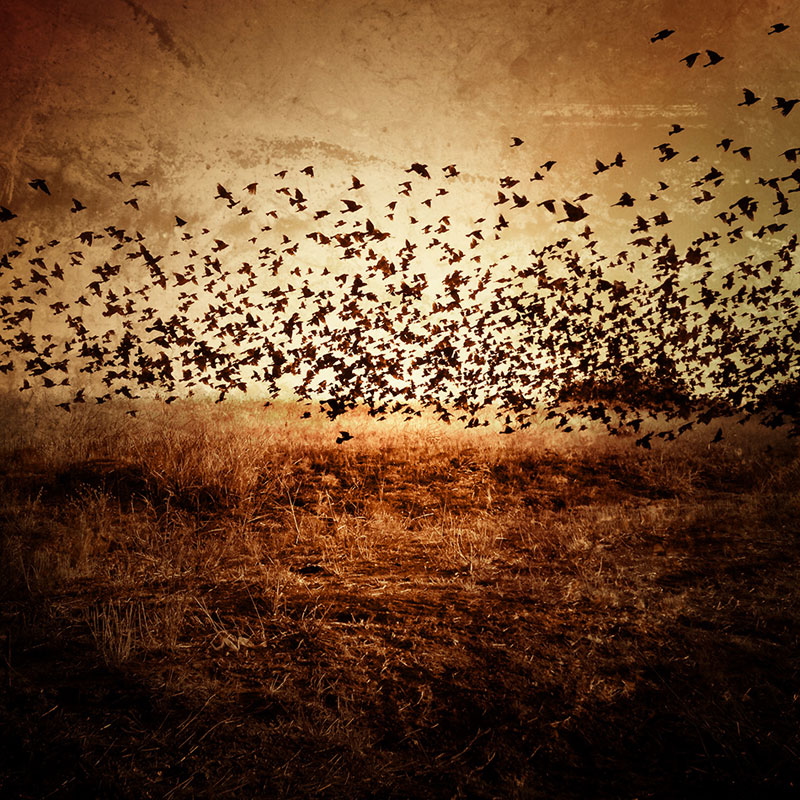

knit ... Easter
thanks, Leah
knit
thanks, Phyllis

knit
knit
knit

Knit Pattern of the Day: Valerie, Canadian Correspondent

crochet
thanks, Doris
THE PRINCESS and her CLOTHES
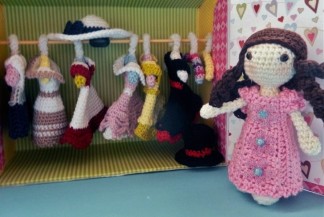
crochet

crochet

crochet

crochet, Easter
thanks, Gabby
myrosevalley
EASTER EGG COZY TUTORIAL
Material:
4ply or 5ply cotton, work with double strands. I used Catania 5ply.
40-50 g base color (Rosa 00246)
20-25 g second color (Jade 00253)
10-15 g edge color (Sonne 00208)
5mm hook
Scissors
Darning needle
How to:
Work a long strip which will be folded in half lengthwise. Sew pockets for the eggs, either by hand with a darning needle or on a machine, or with a crochet hook doing slip stitches.
Gauge and measurements:
Every pocket should measure about 6-7 cm/≈ 2,5 inches wide to fit a medium sized egg. I calculated 7 trebles (UK)/double crochet (US) between seams. Make a swatch to get the right measurement before starting on your foundation chain.
Calculation:
The calculation I use for my foundation chain is:
7 chains x 13 eggs and then I multiply this by 2 as I am folding the strip in half = 182 chains. Then I add another 3 chains for turning, a total of 185 chains. (7 x 13 x 2 + 3 = 185). I was winging it and I think it ended up slightly to long. Next time I will adjust it to fit only 10 eggs, a total of 143 chains (7 x 10 x 2 + 3 = 143).
FOUNDATION:
To fit 13 eggs, I made 185 chains for my foundation chain.
To fit 10 eggs, make a foundation chain of 143 chains.
ROW 1:
Make a treble (UK)/double crochet (US) in the fourth chain from your hook and in every stitch until end of row. Chain 3 and turn your work.
ROW 2:
Skip stitch at the base of your 3 chains made and make treble (UK)/double crochet (US) in the next stitch and in every stitch until end of row. Cut yarn and fasten off.
ROW 3:
Join new yarn, chain 2 (counts as first half treble (UK)/half double crochet (US), make half treble (UK)/half double crochet (US) in every stitch until end of row. Cut yarn and fasten off.
ROW 4:
Join new yarn, chain 2 (counts as first double crochet (UK)/single crochet (US) and 1 chain). Make a double crochet (UK)/single crochet (US) followed by 1 chain in every stitch until end of row. Cut yarn and fasten off.
4ply or 5ply cotton, work with double strands. I used Catania 5ply.
40-50 g base color (Rosa 00246)
20-25 g second color (Jade 00253)
10-15 g edge color (Sonne 00208)
5mm hook
Scissors
Darning needle
How to:
Work a long strip which will be folded in half lengthwise. Sew pockets for the eggs, either by hand with a darning needle or on a machine, or with a crochet hook doing slip stitches.
Gauge and measurements:
Every pocket should measure about 6-7 cm/≈ 2,5 inches wide to fit a medium sized egg. I calculated 7 trebles (UK)/double crochet (US) between seams. Make a swatch to get the right measurement before starting on your foundation chain.
Calculation:
The calculation I use for my foundation chain is:
7 chains x 13 eggs and then I multiply this by 2 as I am folding the strip in half = 182 chains. Then I add another 3 chains for turning, a total of 185 chains. (7 x 13 x 2 + 3 = 185). I was winging it and I think it ended up slightly to long. Next time I will adjust it to fit only 10 eggs, a total of 143 chains (7 x 10 x 2 + 3 = 143).
FOUNDATION:
To fit 13 eggs, I made 185 chains for my foundation chain.
To fit 10 eggs, make a foundation chain of 143 chains.
ROW 1:
Make a treble (UK)/double crochet (US) in the fourth chain from your hook and in every stitch until end of row. Chain 3 and turn your work.
ROW 2:
Skip stitch at the base of your 3 chains made and make treble (UK)/double crochet (US) in the next stitch and in every stitch until end of row. Cut yarn and fasten off.
ROW 3:
Join new yarn, chain 2 (counts as first half treble (UK)/half double crochet (US), make half treble (UK)/half double crochet (US) in every stitch until end of row. Cut yarn and fasten off.
ROW 4:
Join new yarn, chain 2 (counts as first double crochet (UK)/single crochet (US) and 1 chain). Make a double crochet (UK)/single crochet (US) followed by 1 chain in every stitch until end of row. Cut yarn and fasten off.

RECIPE
thanks, Vicky

Tips for Perfect Homemade English Toffee

COOKBOOK SUNDAY
Budget and kid-friendly recipes from the American Supplemental Nutrition Assistance Program


Tips for Perfect Homemade English Toffee

COOKBOOK SUNDAY
Budget and kid-friendly recipes from the American Supplemental Nutrition Assistance Program

ADULT COLORING



CRAFTS
thanks, Stella
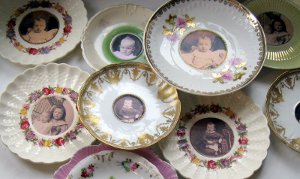

CHILDREN'S CORNER ... weaving
| adult ashtray castle cover crown crust damsel dream | flamingo flight fungus furniture guns house invade | lumber match paint panel queen rafter | scare serious sheet shingles shower sight silly stink strut | study sturdy thanks title toss truss went |

SUDOKU ... hard
solution:

QUOTE




CLEVER
Clothespin Flower Pot

A recycled tuna can and a few clothespins make quite the unique flower pot or candle holder. You don’t even need any glue for this simple project! You could even try spray painting the clothes pins for a unique look.

EYE OPENER
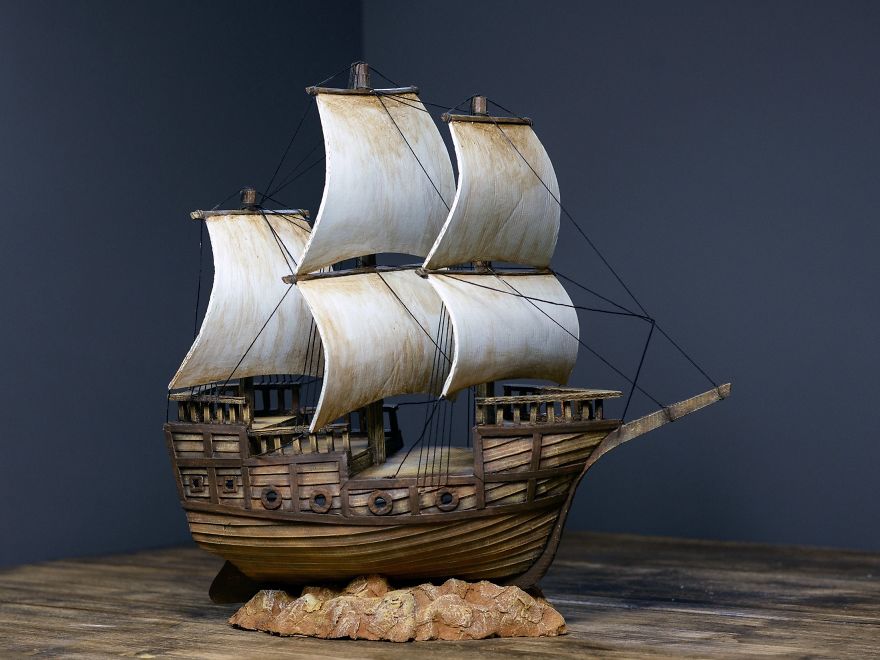

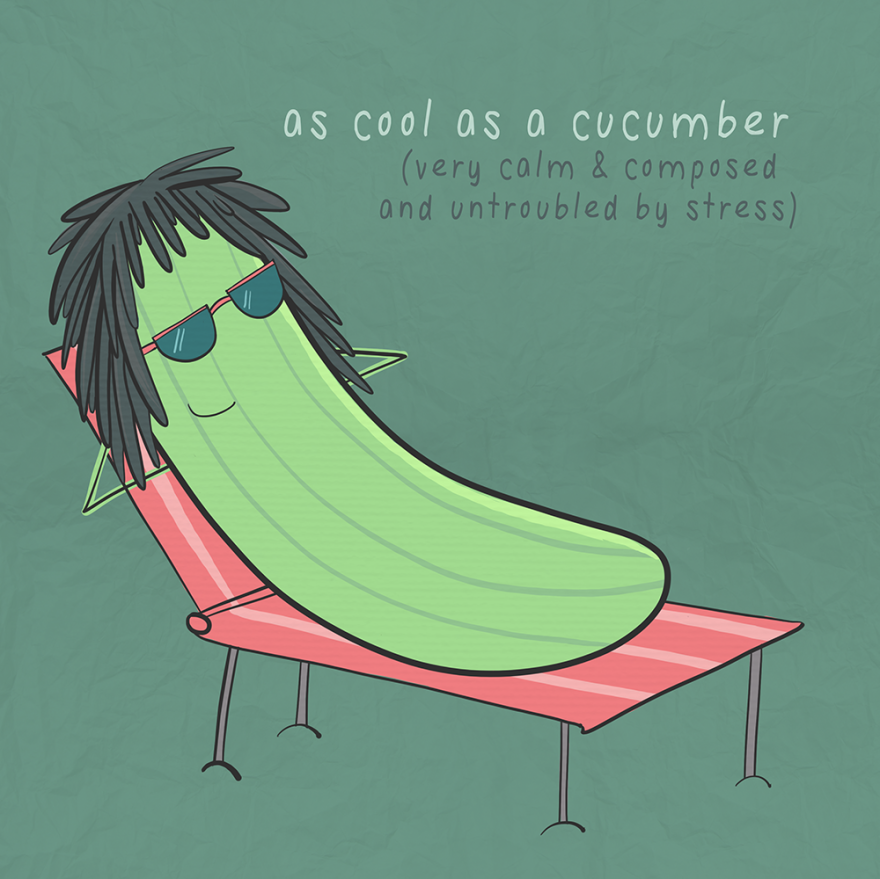






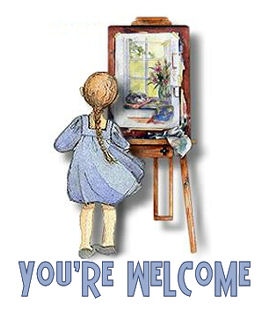
No comments:
Post a Comment